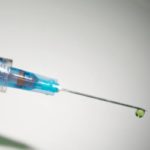Why Early Detection And Treatment Of STIs Is Vital
April is STI (Sexually Transmitted Infection) Awareness Month. It is important that we all be informed not only about STIs and how they are contracted but why early detection and treatment is vital.
What Are the Most Common STIs in the United States?
The Center for Disease Control (CDC) estimates that more than 110 million Americans have some sort of STI and the most common STIs are:
- HPV (the Human Papilloma Virus-this can lead to genital or anal warts)
- HSV-2 (Herpes Simplex Virus)
- Trichomoniasis
- Chlamydia
- HIV (the Human Immunodeficiency Virus-this is the virus that can develop into AIDS)
- Hepatitis B
- Gonorrhea
- Syphilis
These are listed in order of most to least common in the United States.
All these STIs can be contracted via sexual intercourse but also through oral sex, anal sex, and contact with bodily fluids such as saliva, blood, sperm and vaginal discharge. Very few can be contracted through simple skin-to-skin contact.
Who Should Be Tested For Them?
Not all STIs show symptoms. This means that, depending on your history, regular testing may be recommended, whether you are experiencing symptoms or not. Often, patients must request tests from providers. In general, it’s a good idea to be tested if:
- You’ve recently had unprotected sex.
- You are considering sex with a new partner.
- Your health care provider recommends testing.
According to Planned Parenthood, if you speak to your provider about testing, it is likely that he or she will ask a number of questions about your history. Some of the questions you can expect to be asked include:
- Your sexual practices, including how many partners you have, body parts involved and barrier methods used
- Whether you have any symptoms
- Whether you’ve had symptoms in the past
- Whether you’ve tested positive for an STI in the past
- Whether your partner or partners have tested positive for STIs
What Is Involved In The Testing Process?
Different STIs require different tests. You may require a physical exam, including a pelvic exam for women. A blood test and or urine test are not unlikely as well as a test of saliva or another type of cell
In terms of how often you should be tested, your health care provider can best answer this question. However, the CDC recommends that all adults be tested for HIV at least once. Sexually active adults should be tested for chlamydia and gonorrhea at least once a year if they have a new partner or partners, multiple partners, a partner with an STI, or are under 25 years of age. Other risk factors may require more frequent testing.
Why Are Early Detection and Early Treatment Important?
Early detection of STIs is important for a number of reasons. Perhaps the most significant reason that early detection is important is that it allows for early treatment. There are many reasons why early detection and treatment are beneficial, and some of those reasons are because:
- Some STIs show no symptoms at all. This means that you could have and pass on an STI without knowing it
 unless you are tested.
unless you are tested. - Early testing is a way to help prevent the spread of STIs.
- HIV tends to co-occur with many other STIs. Early detection means the opportunity to treat early and prevent HIV from developing into full-blown AIDS.
- Some STIs, such as gonorrhea and chlamydia, can lead to chronic pain and infertility. Both are easily treatable, but treatment can only happen if one is tested.
- Testing gives you peace of mind. Having to worry about whether you have an STI can cause significant stress. Better to simply be tested and have the facts.
Why Is Early Treatment Important?
As mentioned above early treatment, even if you show no symptoms, is important for several significant reasons. Early treatment can mean the difference between long-term health problems and a relatively healthy life. It also means that you are not infecting the people you are sleeping with.
There are fairly severe consequences to leaving STIs untreated. Is this a risk that you are willing to take?







